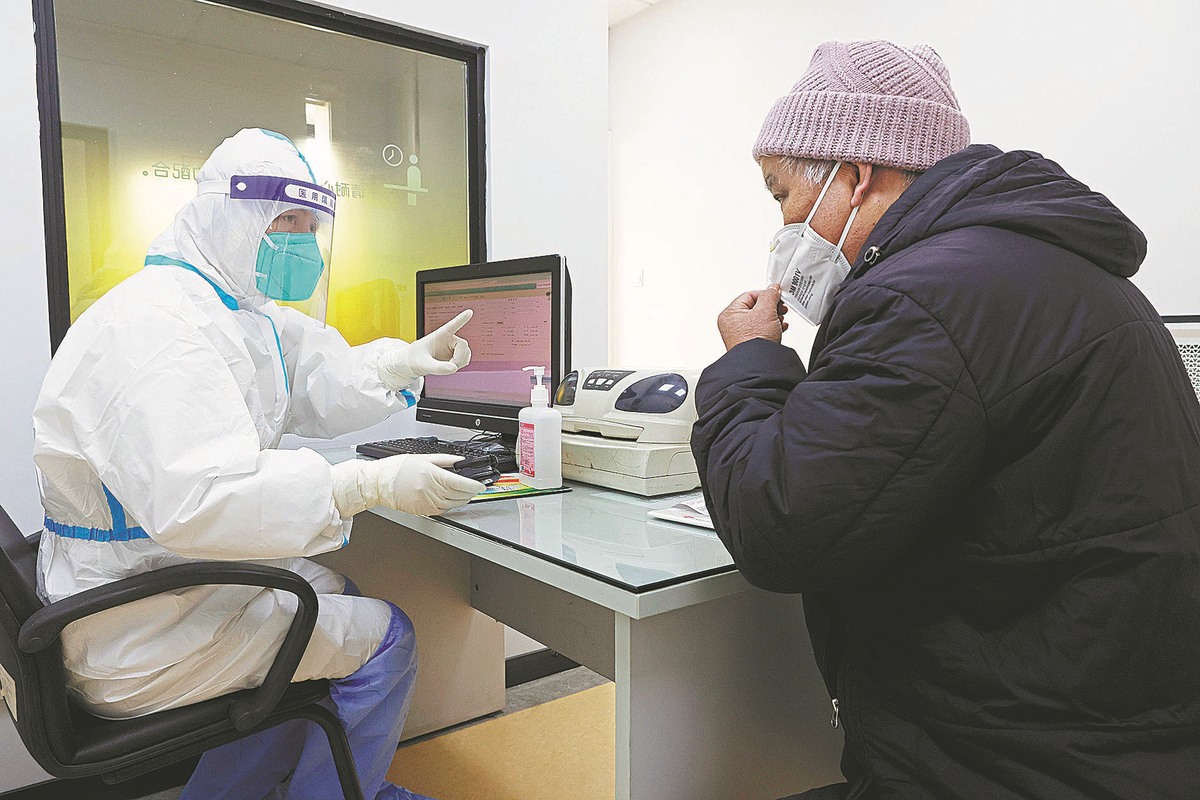
A doctor attends to a patient at the fever clinic at Hongqiao Community Health Service Center in Changning district, Shanghai, on Monday. (Photo: China News Service)
China's new COVID-19 pandemic prevention and control policies include a variety of concrete measures to coordinate the efforts of different parties in the fields of vaccination, medical care, medicine supplies and neighborhood services for the common purpose of saving lives.
Although all of these parties assume indispensable roles in this campaign, it is the grassroots government departments, neighborhood property management companies, residents' and villagers' committees that are in charge of docking the policies with the people's needs to make sure they can access medical care and obtain medicines in an emergency.
That means, after acting as the front line in the war against the virus for three years, the grassroots parties must continue to play crucial roles in the new stage of the war. They need to divert attention from curbing infections to saving the lives of the most vulnerable residents. All senior residents, particularly those unvaccinated ones with underlying health conditions, will now become their main service objects.
Most public services and social security work must be carried out efficiently at the grassroots level. The grassroots departments should improve their ability to provide services to vulnerable groups of people, and take the initiative to provide door-to-door services and help them solve their practical difficulties.
For instance, they can work closely with the community medical institutions to provide necessary medicines and antigen detection kits for local senior residents, making them feel that they are well cared for and protected.
As the base of the hierarchical diagnosis and treatment system in the country, the large numbers of community rehabilitation centers, clinics and village and family doctors will assume a major role in the future pandemic prevention and control work to help ease the burden on the limited number of major hospitals, further enhance the vaccination rate of the population and provide health consultation, psychological counselling, instructions on drug use and health education, as well as help the patients to transfer to hospitals of higher levels.


